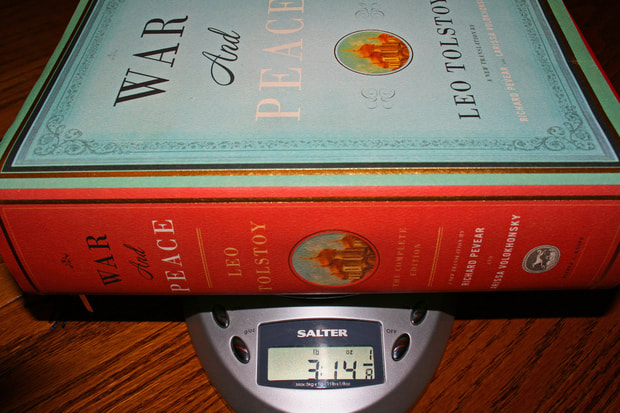That includes the questions that great philosophers throughout the ages have recognized as the most important of all: Where did we come from, what are we doing here, and where are we going?
And it includes the most profound questions that humans have been asking almost since the beginning of time – for instance, if God is good, why does He allow suffering? Why do the wicked prosper? How might I be saved for all eternity?
In fact, I have yet to think of an important question that the Bible does notaddress completely and authoritatively.
So here’s the kicker: It does all of this in under 800,000 words. That’s for King James; in its original super-efficient languages of ancient Hebrew and Greek, it uses just over 600,000 words.
How does this compare to other popular books?
- Tolkien’s The Hobbit and The Lord of the Rings trilogy weigh in at about 550,000 words; add Dostoyevsky’s Crime and Punishment to this short stack, and you’ll be ingesting roughly the same number of words used in an English Bible.
- It took Ayn Rand about 875,000 words to tell the stories of The Fountainhead and Atlas Shrugged – roughly 100,000 more words than God used, and the only question she really answers is “Who is John Galt?”
- For War and Peace and Anna Karenina, Leo Tolstoy needed 937,000 words to tell tragic tales of the 19th century Russian aristocracy.
- For lighter reading, many turn to combo’s like Margaret Mitchell’s 418,000-word Gone with the Wind and Larry McMurtry’s 366,000-word Lonesome Dove; together, their counts roughly equal the Bible’s.
The trouble is, even if tales like these stick with you for some time, they’re pretty much empty calories. They provide very little in the way of the life-transforming wisdom that is standard biblical fare.
But it’s still a free country, and we can each decide how to spend our literary calories. We can have a great time chowing down spiritual junk food. Or we can reach for the Lord’s far more nutritious revelation of “the mind of God, the state of man, the way of salvation, the doom of sinners, and the happiness of believers.”

 RSS Feed
RSS Feed